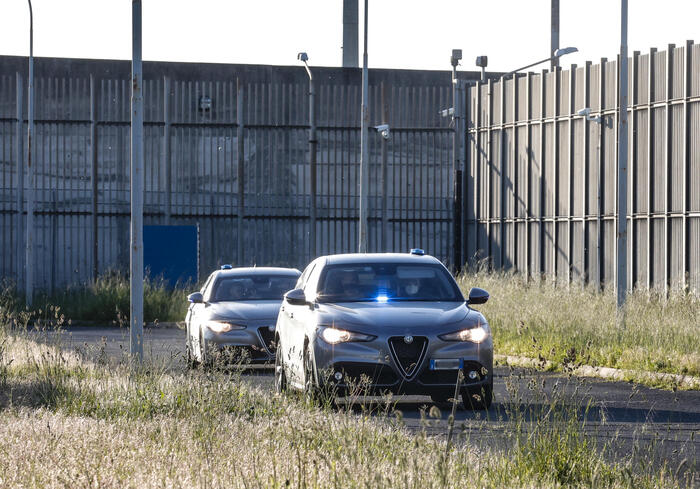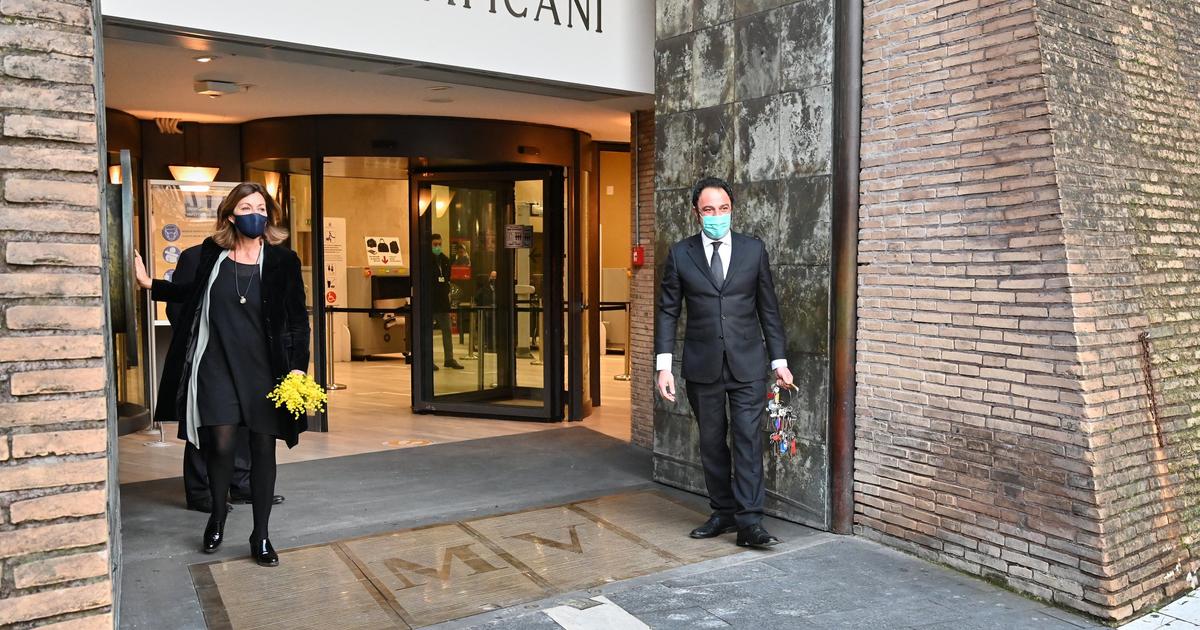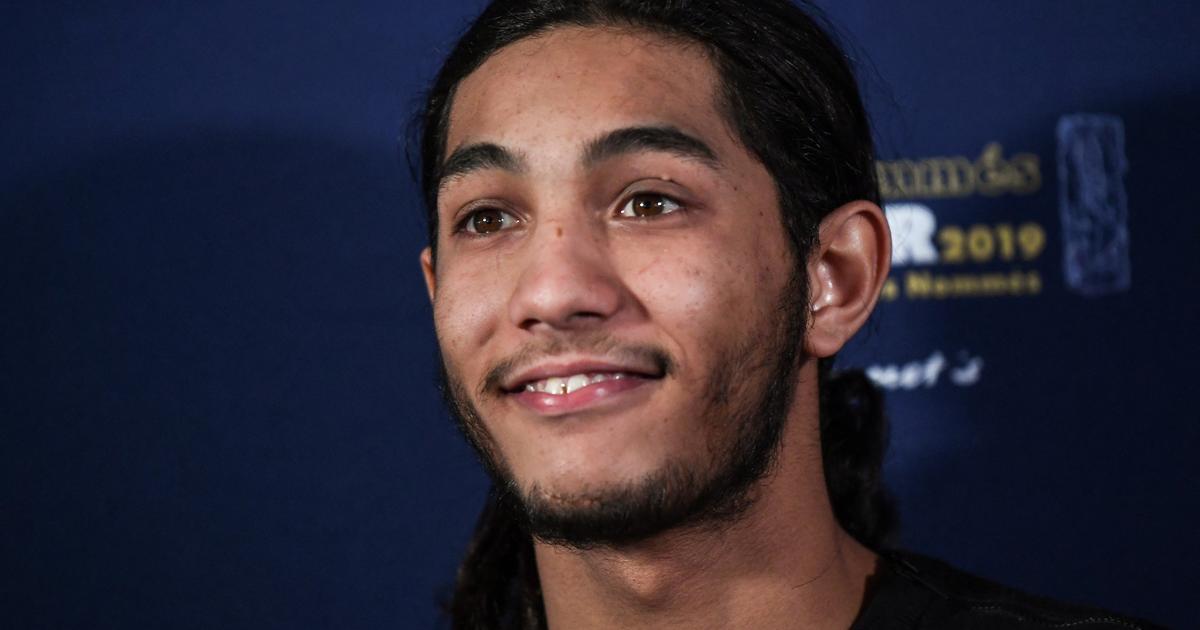Short sentences are expensive. Many of the veteran prisoners isolate the new inmate, whom officials also distrust systematically. It ends up forming a surveillance body that scrutinizes the newcomer every minute. Why has his sleep been disturbed?, What is the reason for keeping the cell so clean and tidy?, Nor has he taken dessert at lunch today? Long-term inmates assert their criminal stripes and are spared from the first day of this interrogation. At least that's what Andrés P. Gómez perceived during his time in the Villabona Penitentiary Center (Asturias), where he was locked up for three months. Already at that time, the 28-year-old man was preparing a documentary about the deep mark that prison had left on him and his group of friends. The result is titled La mala familia, directed by Nacho A. Villar and Luis Rojo.
The film, which will arrive on Netflix in a few months, can be seen these days at the Cineteca and the Pequeño Cine Estudio in Madrid, as well as at the Sala Zumzeig and the Cinema Maldà in Barcelona. It is an urgent documentary about six working-class kids who carry the judicial consequences of a brawl. Things got ugly one night of alcohol and testosterone in the center of the capital. Six years later, all face prison sentences, although at first only Gómez will serve his sentence. The imprisonment of the rest depends on them facing a fine of 330 euros per month for two years. A single default would put the freedom of all of them at risk. Doubt undermines their friendship. Narrated from the absolute honesty of its protagonists, the film begins with the repentance of Gómez, who pleads guilty before the judge. Today the man has rebuilt his life and works as a delivery man. "I assume my grief, but if I feel liberated it is not because of prison, but because of film," he says.
Directors Nacho A. Villar (left) and Luis Rojo, at the gates of the Román Valero stadium in Usera (Madrid). Claudio Alvarez
Gómez was arrested in Asturias, still in his overalls, and barely had time to notify his partner. "The events had occurred when I was 18 years old. At the moment of entering the talego I was already more organized, more focused, it was a stick. Until then I had fooled myself that that day would never come," he recalls. He served his sentence in the Therapeutic and Educational Unit (UTE) of Villabona prison, where visits and sending letters are restricted to two or three people per inmate. The toilets of the module can be used only for 10 minutes. After this time, it is usual for the manager to look out with the aim of avoiding drug use. The measured times and the enormous weight of the routine were pierced in Gomez's chest. "I thought about getting out of the way of the burden I had," he confesses. Until he was granted the third degree, largely thanks to the documentary.
The directors had worked hard to defend the social character of the project, which redeemed its protagonists, and thus demonstrated Gómez's roots with reports of all kinds. "That was the support we could give him from our privilege," says Villar. "It must be said that it was an exception, most of the prisoners with sentences of less than one year eat it by hand." The film crew was installed two weeks before Gómez's first permit in a swamp on the outskirts of Madrid. The idea was to bring together the whole Mala Familia, as they call themselves since adolescence, when they met at urban music concerts, squares south of the capital and skateparks. Rojo notes: "This story was best told in the countryside, without towers or graffiti that prevent you from seeing the character. The neighborhood is not a set, but something you carry around."
"We wanted them to get out of the pressure zones, those of their daily lives, to connect with emotions. It is the right to rest," adds the filmmaker. A total of 19 young people, including the defendants, camped on the shore, all waiting for Gomez's visit. The camera witnessed conversations and hugs, without intervening in any way in the events. It is true that there was a script with themes agreed in advance. That of the non-payment of the fine was transcendental to round off production. None of those involved knew exactly the situation of the rest, perhaps out of anger or shame. The issue first came up during a sequence shot that oozes truth. Some of the boys were about to give up. The penalty imposed is greater for them than the rent of their apartment. Others are reluctant to end up in prison, and will pull the cart on behalf of others.
An image of 'La mala familia', by Nacho A. Villar and Luis Rojo.
It would seem that cinema generates reality at this point. "We were no longer facing the simple documentation of the facts with which we started the film, nor was that fiction, everything happened in an improvised way," says Rojo. Behind the touch of the images is his sensitive gaze at a reality that lends itself to clichés. It is the brand of the Brbr collective, of which both directors are part, anchored in the Madrid underground scene. They are responsible for some of C. Tangana's video clips, although above all they cultivate advertising communication. For their first feature they dare with a stark portrait of uprooting, loss, power and friendship. That one that also unites them with Gómez, with whom before this film they had already counted as an actor. "The footage is a very small part of the journey we've taken together. The change in collective dynamics is evident, now they talk about things, they are more transparent among themselves, "says Villar.
The best proof that the project transcends the screen is called Yamel, another of those affected. He expressed his fear of entering prison throughout the film and, as in a self-fulfilling prophecy, today he is interned in Estremera for causes after the fight that have been accumulating in his history. Visiting him and writing to him often are two objectives of the gang, which otherwise has suffered no further casualties and is at peace with justice. When celebrating a year in freedom, Gómez closes his eyelids tightly and confesses: "I want to lower my guard, share the problems and not be chepa. I've had to hit rock bottom to feel good. As a child you could have explained things to me differently, without accumulating so much hatred, which distances you from people. Now I'm happy to help a colleague, offer him my tricks to move forward, like other bastards did with me." In the process he has chased away his ghosts. And the Bad Family is more united than ever.
Subscribe to continue reading
Read without limits
Read more
I'm already a subscriber








/cloudfront-eu-central-1.images.arcpublishing.com/prisa/NLNPE2L2KZE2RMJ2275H24NCOY.jpg)
